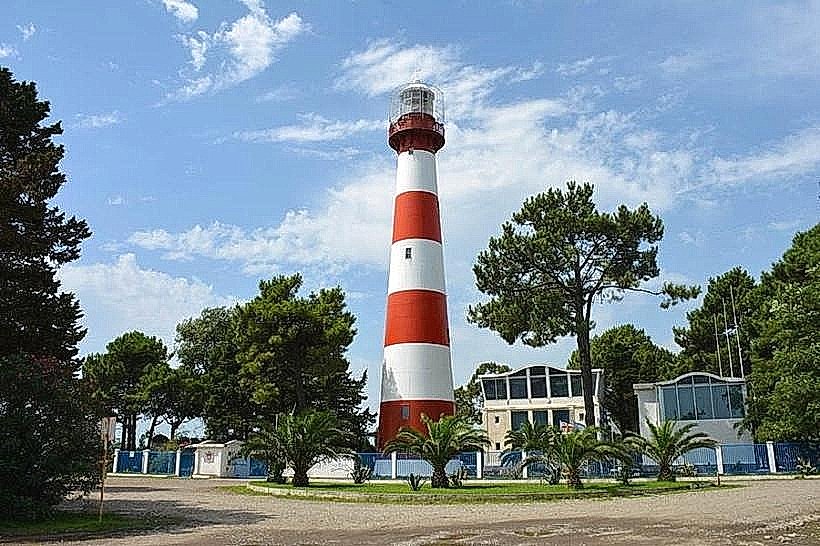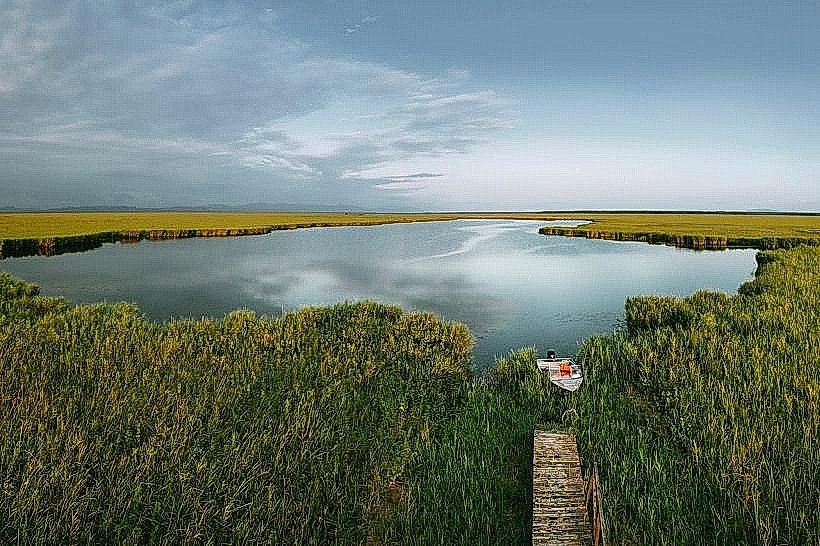Information
Landmark: Pichori FortressCity: Poti
Country: Georgia
Continent: Asia
Pichori Fortress, Poti, Georgia, Asia
Pichori Fortress is a historical fortification situated on a hill overlooking the Black Sea coast near Poti, Georgia.
Visual Characteristics
The fortress is constructed primarily from rough-hewn stone blocks, exhibiting a weathered grey and brown coloration. Its defensive walls stand at an average height of 8 meters, with remnants of crenellations visible along the parapets. The architectural style is characteristic of medieval Georgian military fortifications, featuring a rectangular layout with corner towers.
Location & Access Logistics
Pichori Fortress is located approximately 5 kilometers northwest of Poti's city center. Access is via the Poti-Anaklia highway (S2). Turn off the highway onto a gravel road marked by a small sign for the fortress. The gravel road extends for approximately 1.5 kilometers. Parking is available on a cleared area at the base of the hill leading to the fortress entrance. There are no direct public transport routes to the fortress; visitors typically use private vehicles or taxis from Poti.
Historical & Ecological Origin
Construction of Pichori Fortress is attributed to the 16th century, likely commissioned by local feudal lords to defend against Ottoman incursions. Its strategic position on the elevated terrain provided a vantage point for monitoring maritime activity along the coast. Ecologically, the site is situated on a coastal bluff, characterized by scrub vegetation and proximity to the Black Sea's saline environment.
Key Highlights & Activities
Exploration of the remaining defensive walls and towers is the primary activity. Visitors can walk along the accessible sections of the ramparts. Photography of the coastal panorama from the fortress grounds is recommended. The site is suitable for historical site exploration and passive observation of the surrounding landscape.
Infrastructure & Amenities
There are no dedicated visitor facilities at Pichori Fortress. Restrooms, shade structures, and food vendors are absent. Cell phone signal (4G/5G) is generally available but can be intermittent due to the remote location. Visitors should bring their own water and provisions.
Best Time to Visit
The optimal time for visiting Pichori Fortress is during the late afternoon, approximately 2-3 hours before sunset, to benefit from softer lighting conditions for photography. The most favorable months for weather are May through September, avoiding the heavier rainfall of autumn and winter. High tide or low tide considerations are not relevant to access or activities at this elevated site.
Facts & Legends
Local folklore suggests that a secret tunnel once connected Pichori Fortress to the Black Sea, allowing for clandestine supply drops and escapes during sieges. While no definitive evidence of such a tunnel has been found, the legend persists among older residents.
Nearby Landmarks
- Poti Cathedral (5.2km Southeast)
- Poti Lighthouse (5.5km Southwest)
- Poti Port (5.8km South)
- Anaklia Beach (10.1km Northwest)




